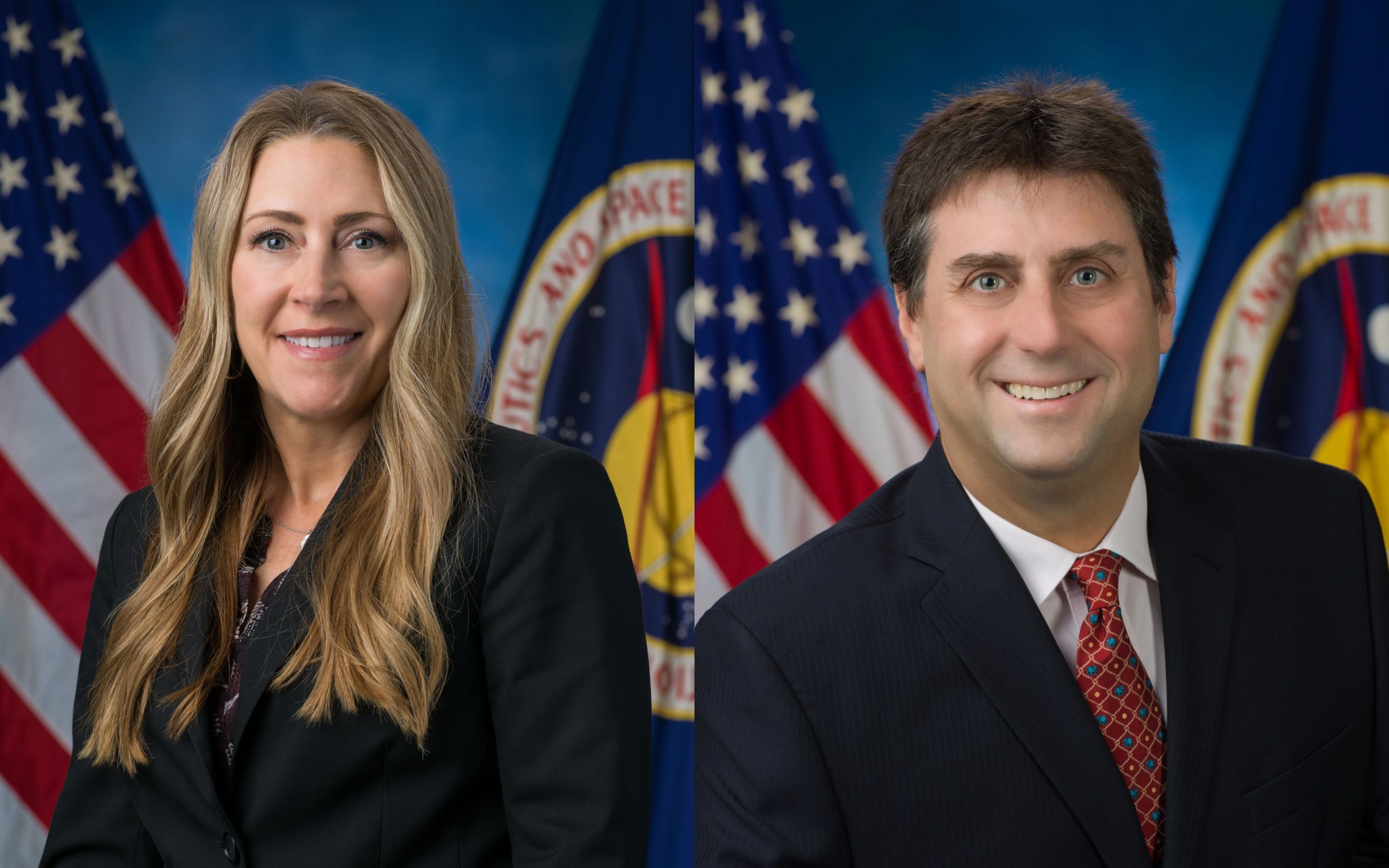
NASA has selected Dana Weigel as the International Space Station Program manager, based at the agency's Johnson Space Center in Houston. Weigel succeeds Joel Montalbano, who has accepted a position as deputy associate administrator for the agency's Space Operations Mission Directorate at NASA Headquarters in Washington. Both positions will be effective April 7.
"Dana is an excellent choice to lead the space station program during this remarkably busy time in human spaceflight, especially aboard humanity's home in orbit," said Ken Bowersox, NASA's associate administrator for space operations. "With Dana continuing her contributions to space station, Joel will bring his experience to the Space Operations directorate. NASA will continue to benefit from their human spaceflight knowledge as we maintain our unique capabilities in orbit and prepare for the future of the agency's operations in space."
Weigel will bring 20 years of NASA experience to her new role. She's currently serving as the agency's deputy program manager for the International Space Station since 2021. As program manager, Weigel will be responsible for the overall management, development, integration, and operation of the orbital complex. She also has served in a number of key positions at NASA, including as the manager of the Space Station Vehicle Office from 2014 to 2021, where she was responsible for sustaining, sparing and developing systems and payload facility hardware, managing the risks, and integrating commercial and international partner elements into the International Space Station. She served as deputy chief of the Flight Director Office from 2012 through 2014 and was a flight director from 2004 to 2014. Weigel began her career with Barrios Technology in 1994 and became a NASA civil servant in 2004.
A native of Baltimore, Weigel holds a bachelor's degree in mechanical engineering from Texas A&M University. Throughout her career, Weigel has been recognized for achievements including the Astronauts' Silver Snoopy Award in 2002; NASA's Exceptional Service Medal in 2006, 2010 and 2011; Outstanding Leadership Medal in 2008; Exceptional Achievement Medal in 2010; Silver Achievement Medal in 2014; and Distinguished Service Medal in 2022. She was also recognized as a Rotary National Award for Space Achievement Stellar award recipient in 2000 and 2007.
"Dana's depth of expertise and International Space Station Program experience will be instrumental as we continue to explore low Earth orbit for the benefit of all humanity," said Johnson Center Director Vanessa Wyche. "On behalf of NASA Johnson, we are proud of Joel's contributions and dedication to mission excellence and look forward to his accomplishments as Space Operations Mission Directorate's deputy associate administrator."
Montalbano will lend his vast experience to meet the nation's goals of establishing a low Earth orbit economy and to maintain America's leadership space. He has served as International Space Station Program manager since 2020. Prior to that, he was the deputy program manager since 2012. Montalbano began his career at Rockwell in June 1988 and became a NASA civil servant in August 1998, serving in a number of roles, including as a NASA flight director from 2000 to 2008.
He earned a bachelor's degree in aerospace, aeronautical and astronautical engineering from Iowa State University in Ames, Iowa. Throughout his career, Montalbano has earned multiple NASA awards, including the Distinguished Service Medal in 2018. He received NASA's Exceptional Service Medal in 2003 and 2007, Outstanding Leadership Medal in 2004, and the Superior Accomplishment Award in 2007. He also was awarded the Astronauts' Silver Snoopy Award and the American Astronomical Society's Advancement of International Cooperation Award. In 2012, he was awarded Rank of Meritorious Executive, conferred by the President of the United States. Montalbano also has earned the Boy Scouts of America rank of Eagle Scout.
The International Space Station is a hub for scientific research and technology demonstration. NASA and its partners continue to maximize use of the space station for research, where astronauts have lived and worked continuously for more than 23 years.
The Space Operations Mission Directorate, which oversees the International Space Station Program, helps maintain a continuous human presence in space for the benefit of people on Earth. The programs within the directorate are the heart of NASA's exploration efforts, enabling Artemis, commercial space, science, and other agency missions through communication, launch services, research capabilities, and crew support.






